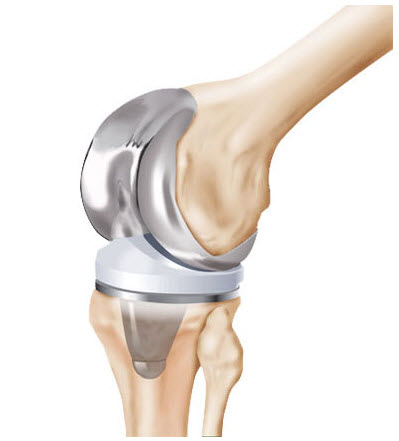Lawsuit Alleges Severe Zimmer Nexgen Knee Problems
 Zimmer Holdings, Inc. is facing another lawsuit alleging NexGen knee problems. The lawsuit filed by Richard and Lois Evans claims that Zimmer launched an aggressive marketing campaign that did not inform them of the risks associated with the artificial knee implant. The New York residents allege severe complications as a result of the reportedly defective design of the device.
Zimmer Holdings, Inc. is facing another lawsuit alleging NexGen knee problems. The lawsuit filed by Richard and Lois Evans claims that Zimmer launched an aggressive marketing campaign that did not inform them of the risks associated with the artificial knee implant. The New York residents allege severe complications as a result of the reportedly defective design of the device.
The case of Evans et al v. Zimmer, Inc. et al was filed in the U.S. District Court for the Western District of New York on August 22, 2014.
The plaintiffs demand compensation from Zimmer for past and present injuries, rehabilitation, home health care, permanent disability, permanent instability of the knee, and pain and suffering.
Plaintiff suffered severe Zimmer NexGen knee problems
Richard Evans underwent a total knee replacement surgery, which is a common type of orthopedic procedure in which the surgeon removes a damaged knee joint and replaces it with an artificial prosthesis. Like other knee replacement patients, Evans expected that the surgery would restore his mobility and alleviate his knee pain.
During the August 16, 2013 surgery, Richard Evans received the Zimmer NexGen knee replacement, which was designed to have a high degree of flexion, or range of motion. Not long after his surgery, the plaintiff reported severe, debilitating pain, along with other symptoms consistent with a failed knee implant.
Numerous plaintiffs have claimed that the NexGen device has caused then to suffer the following problems:
- Severe knee pain
- Swelling
- Loss of mobility
- Loss of range of motion
- Loosening of the device
- Failure of the device
Plaintiff claims defective design, manufacture
The plaintiff alleges that the defendant designed and manufactured a knee system that was inherently defective and unreasonably dangerous when used as intended by consumers. The complaint argues that his Zimmer NexGen knee problems were directly caused by the defective nature of the device.
According to the Zimmer knee lawsuit, about 85 to 90 percent of all knee replacement patients still enjoy the use of their knee implants without complications 10 years after the surgery. The complaint points to studies that note that 38 percent of patients who receive high flexion knee implants, such as the NexGen system, suffer loosening and failure of the device within two years following the initial surgery.
Failure to warn among the allegations
According to Richard Evans, if he had been adequately warned of the serious risks associated with this particular knee implant, he never would have consented to having it placed in his body. The lawsuit claims that before the surgery, the plaintiff’s physician was exposed to an overly aggressive marketing campaign launched by the defendants.
The promotional materials and direct contact with sales representatives from Zimmer suggested that the device was both effective and safe for use, and that it did not have a higher-than-average rate of loosening and failure. Likewise, the plaintiff himself never received a warning about the serious complications, according to the lawsuit. After consulting with his physician extensively, Evans underwent knee replacement revision surgery to remove the failed implant.
As an alleged result of the defendants’ actions, the plaintiff expects to continue to experience severe, debilitating injuries in the future.
- Zimmer, NexGen® Complete Knee Solution Legacy® Knee Posterior Stabilized (LPS) LPS-Flex Fixed Bearing, http://www.zimmer.com/en-US/hcp/knee/product/nexgen-posterior-stabilized-lps-flex-fixed.jspx
- MedicineNet.com, Total Knee Replacement, http://www.medicinenet.com/total_knee_replacement/article.htm


 Resources
Resources
 Resources
Resources